Medical Officer
of the Day
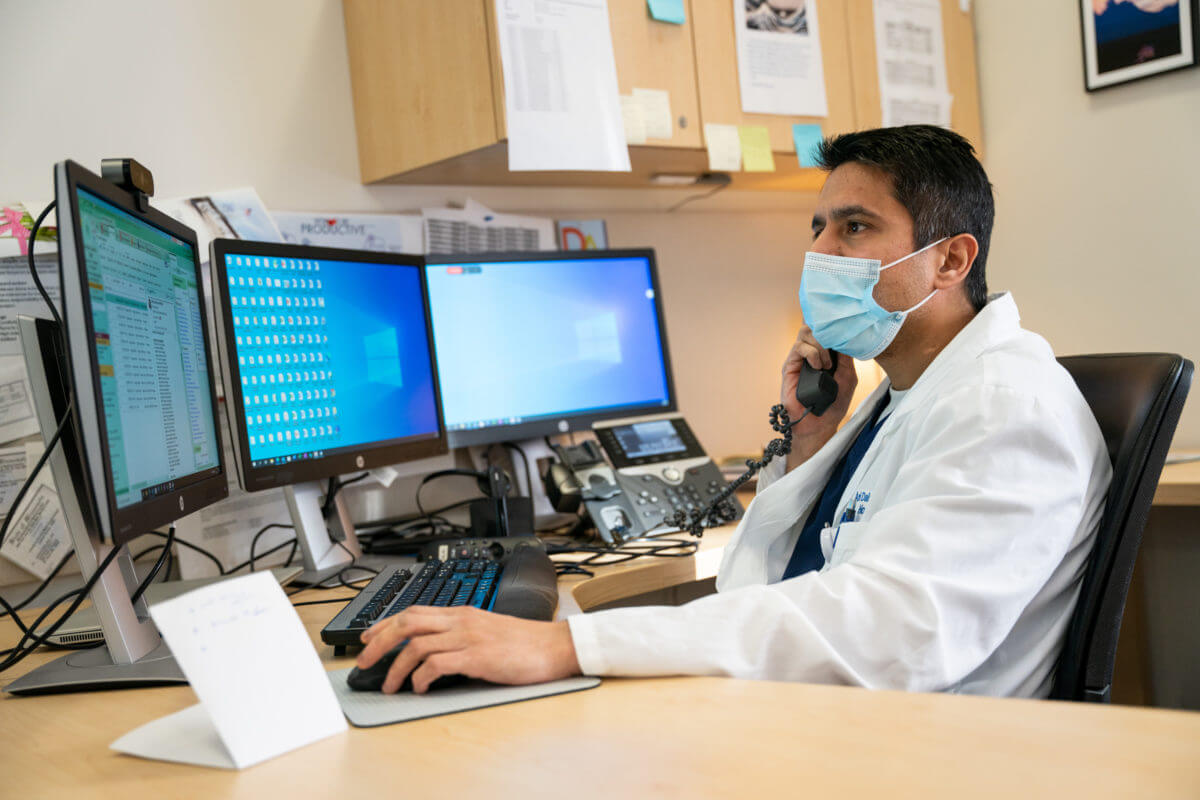
Innovating through Crisis
In the middle of a surge, we created a better way to connect and support each other.
Sometimes it takes a crisis to recognize the true power of good communication. Case in point: the stresses of COVID gave rise to a new innovation at CentraCare – the “Medical Officer of the Day” or MOD. The benefits of the MOD have already transformed CentraCare’s delivery of healthcare, and has wide-ranging implications for use far beyond the scope of the pandemic.
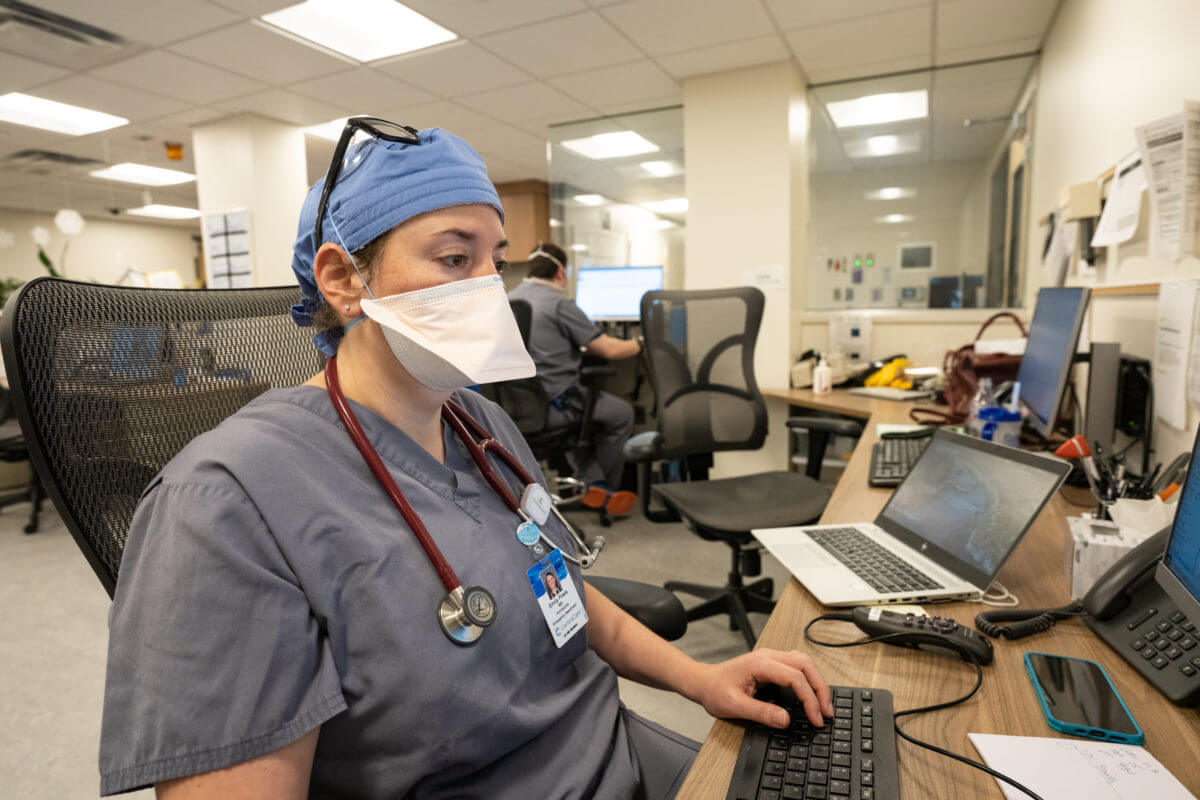
Constant Calls
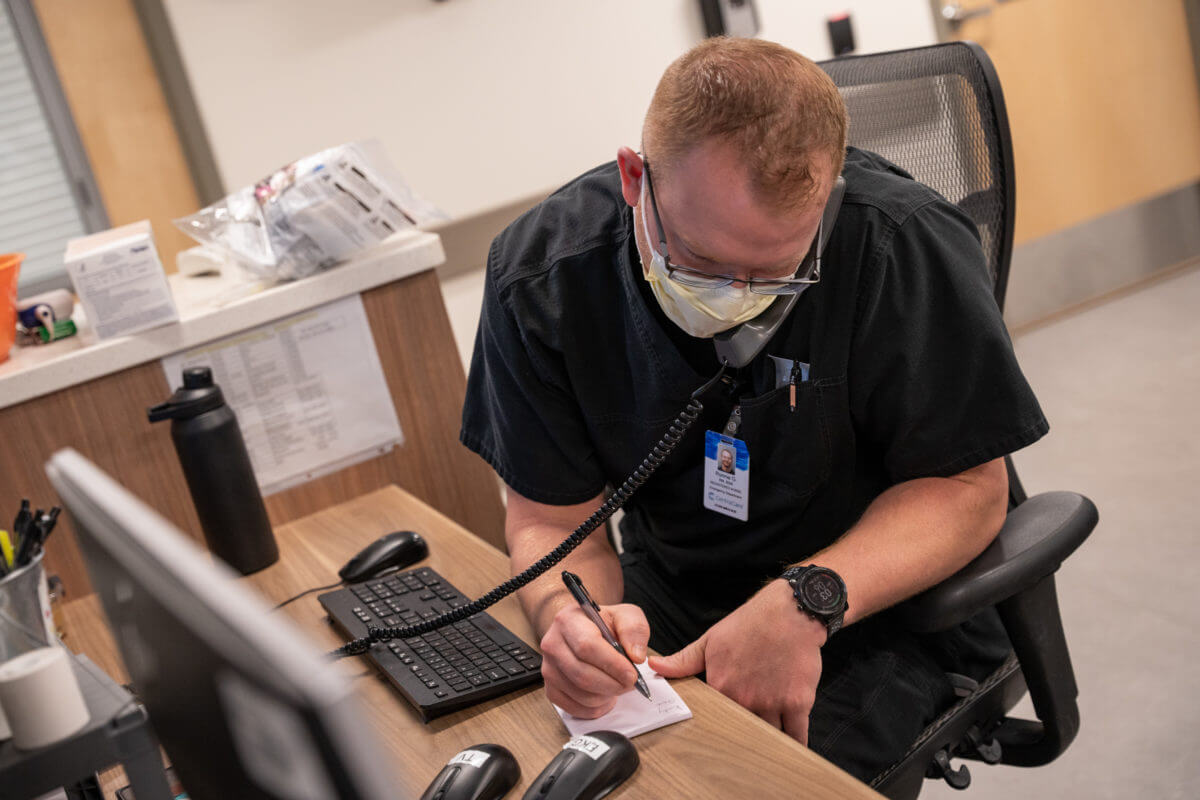
Lindsey Chmielewski, MD, is based in Melrose. She says the COVID surge of late 2021 was worse than anything they’d seen prior. Normally regional hospitals would transfer critical patients to St. Cloud Hospital or another tertiary care center. But now those beds were practically nonexistent.
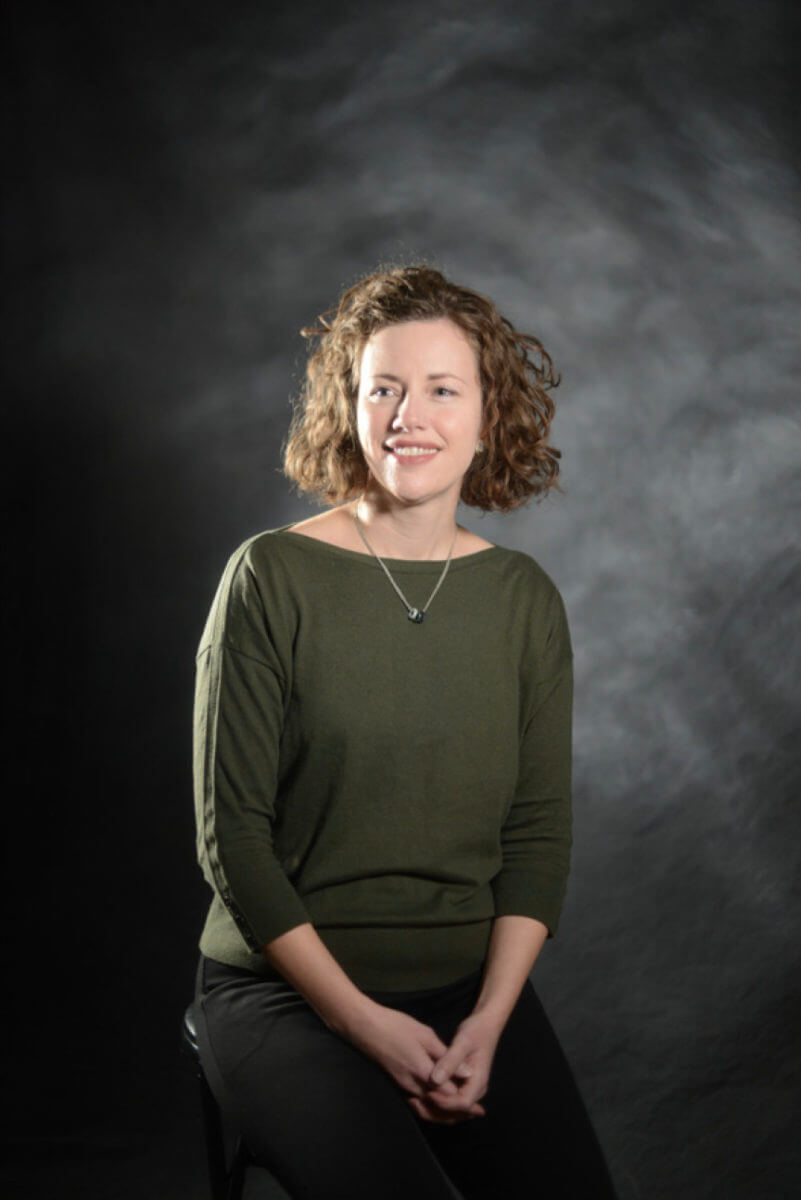
“What we found during this surge is it really took the physician making phone call after phone call to try to find a spot,” said Chmielewski. “It wasn’t something that I could just have a assistant do… it really had to be the physician pleading the case and saying no, this is why I need the specialty care.”
Dr. Chmielewski says not only was it a significant waste of precious time – it was also far too haphazard a process.
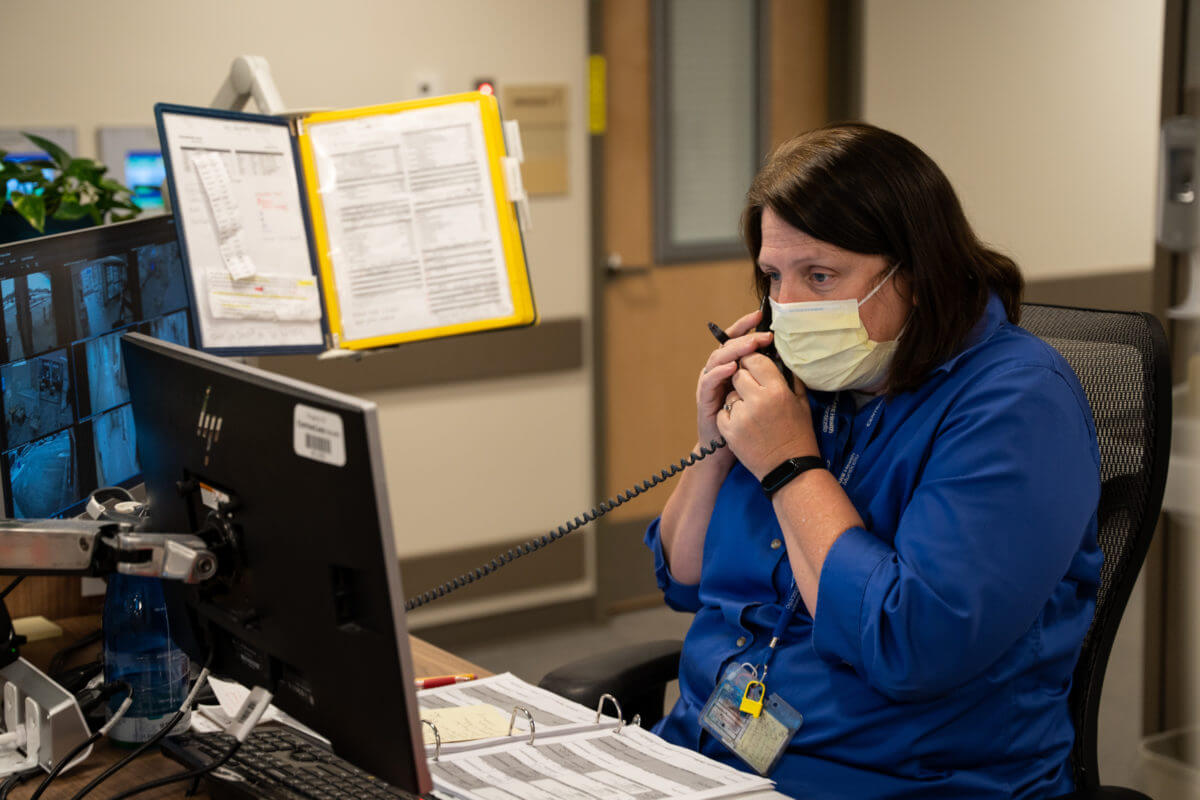
“It was just that feeling of gosh, I could be calling and be told no there’s no availability, and maybe two hours later there is a bed but then it’s just whoever has the luck of the draw with the next phone call.”
Chmielewski reached out to St. Cloud Hospital for help. That Sunday, Dr. Tom Schrup, chief physician officer for CentraCare, drove to Melrose to see the situation for himself.
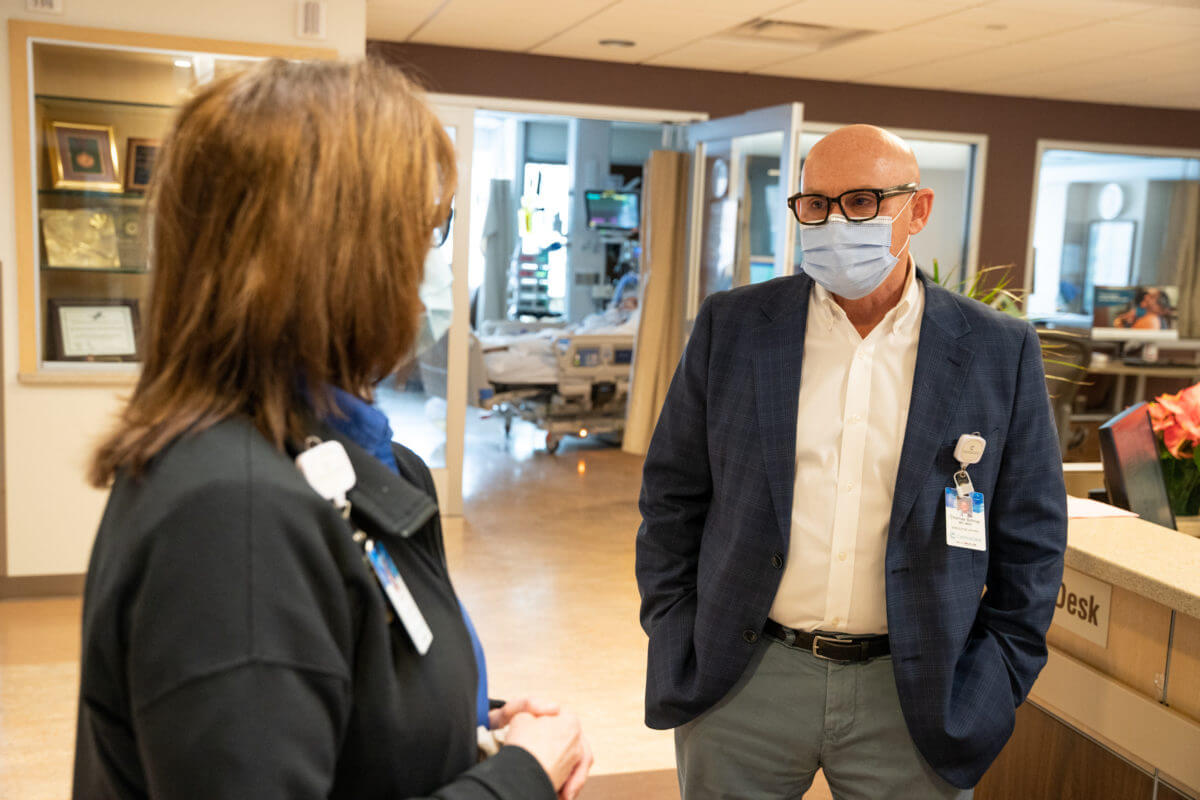
MOD
“They had been talking for a week or so, maybe even longer, about needing to add a hospitalist during the day to help support these folks and manage these patients out in the region,” said Tom Schrup, MD. “And I was thinking, we need that and we need even more camaraderie beyond the physician in the trench – out in the region – and the hospitalist.”
Schrup returned to St. Cloud and, working with the Vice President of Medical Affairs, Dr. Mark Matthias, they created the position of Medical Officer of the Day.
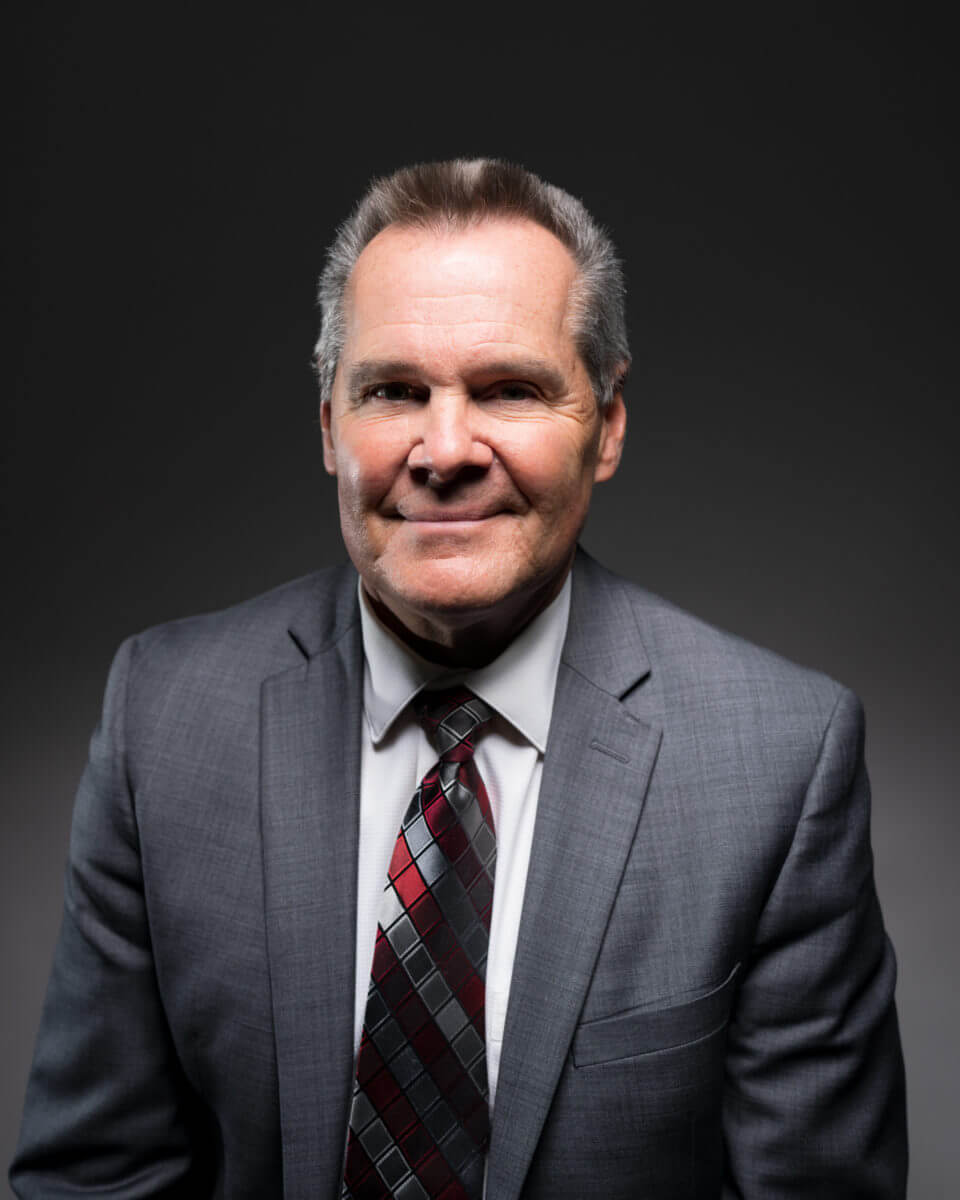
“We took a couple of our most senior hospitalists and put them on the phone for the day answering questions and building relationships,” explained Dr. Matthias. “And what we didn’t realize is the importance of that team that we were then building, and the awareness of what was happening throughout all of CentraCare in each of our hospitals.”
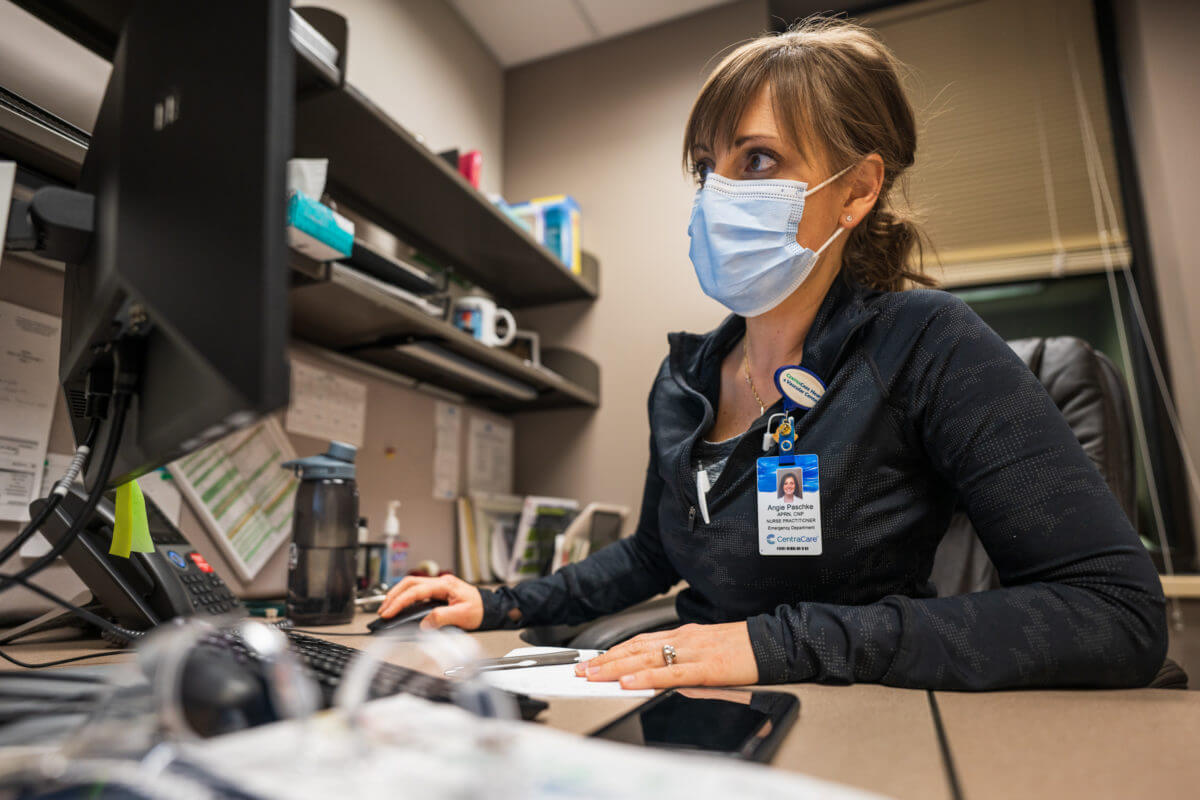
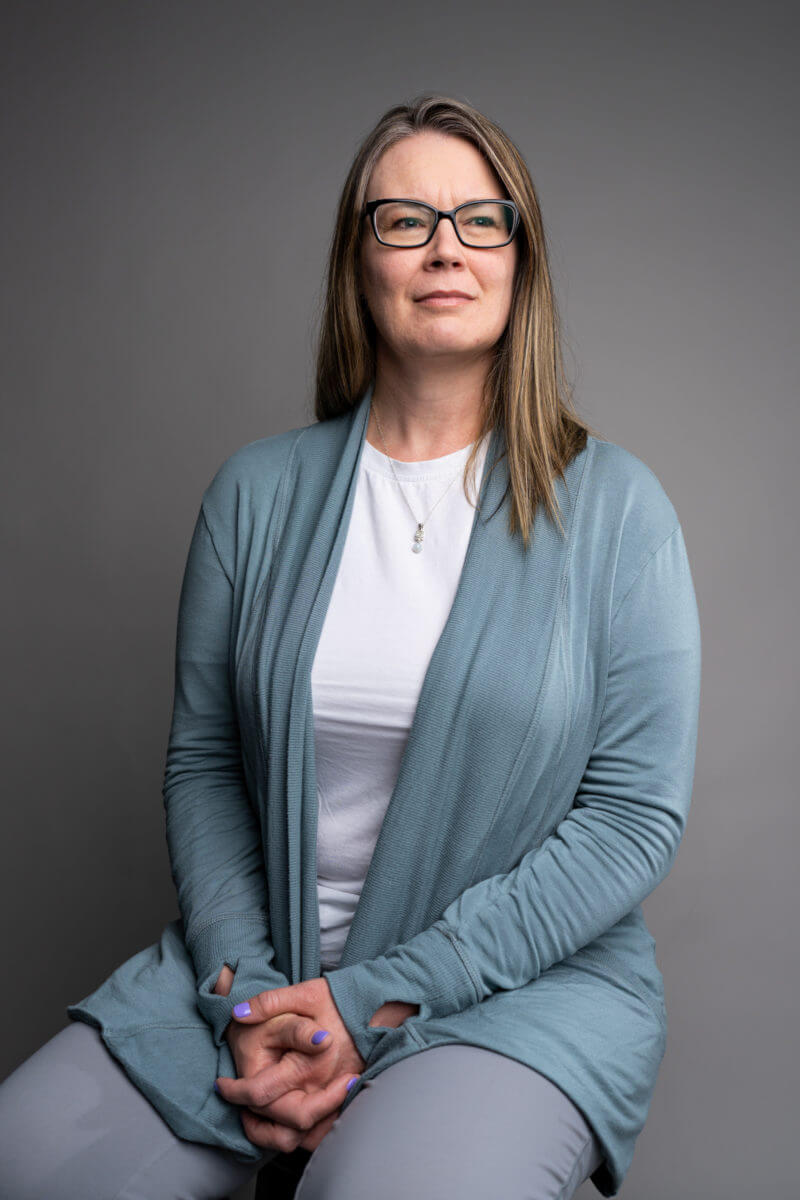
A better way
Ulrika Wigert, MD, is the physician director for the western region for the rural division of CentraCare, based in Sauk Centre. Each morning at 6:30am Wigert makes a series of phone calls to the facilities in Sauk Centre, Melrose and Long Prairie to talk to the charge nurses.
“Basically, it’s like, ‘What’s life like in your world right now? How many patients do you have? How many moms and babies are at your hospital today? How many transitional care patients? And is there anybody that’s critical or you’re needing assistance with or you aren’t able to transfer?’” explained Wigert. “And they share that information about patients that they’re needing help with.”
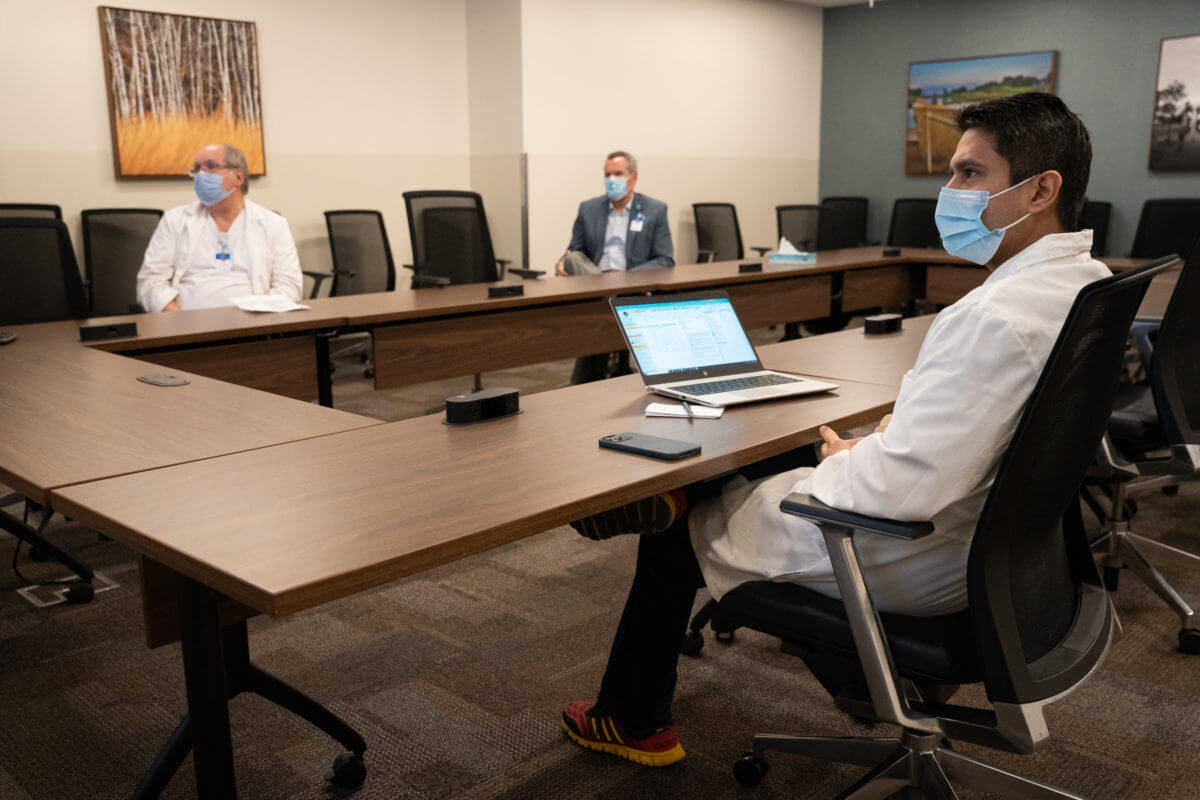
After taking note of patient and staffing needs at each of her regional sites, Dr. Wigert then hops on a second call at 7:30 with St. Cloud and other regional representatives. Together they review the most critical patients across the state and, based on their particular needs, determine the best plan of action.
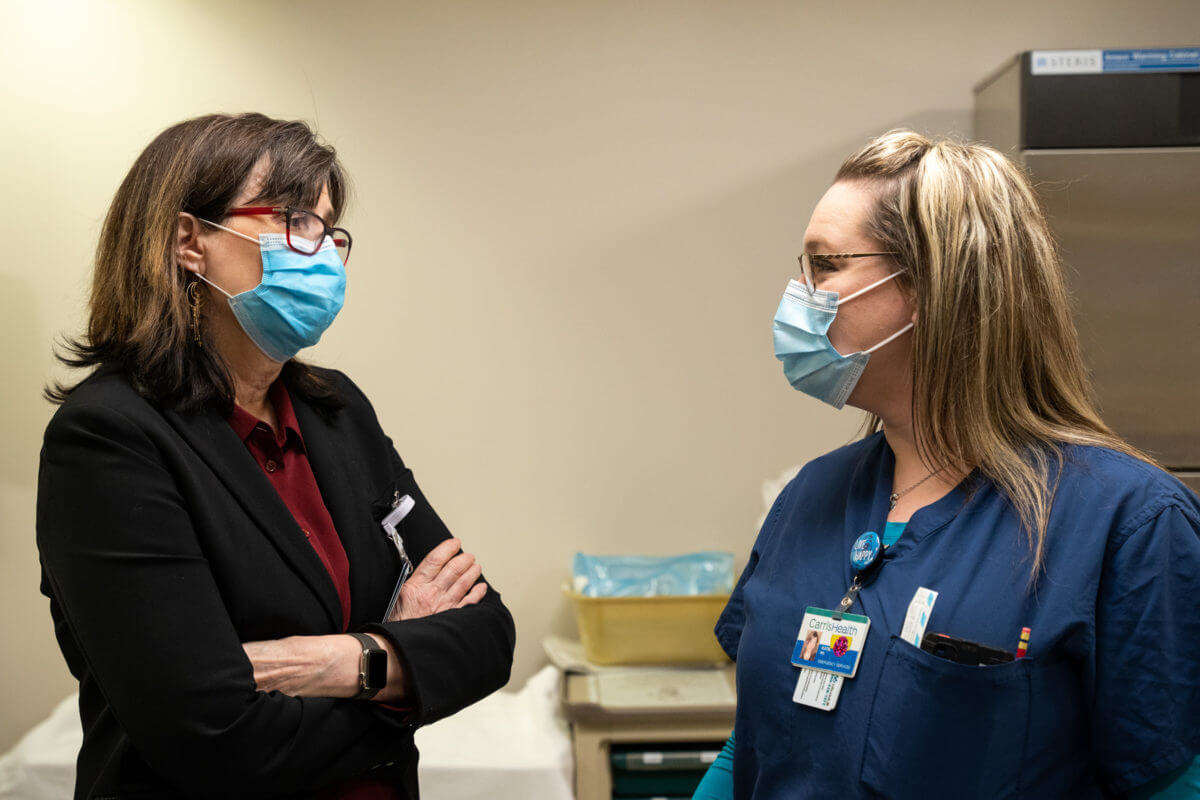
“It wasn’t just COVID patients that we struggled with,” recounted Dr. Cindy Firkins Smith, Senior Vice President of Rural Health. “We saw patients that had strokes and heart attacks and sepsis and needed surgery and could not obtain the care that we knew at any other time, any other day, any other year, their lives would be easily saved. But there just wasn’t the care available. So that’s how the MOD turned out to be so instrumental in survival – I’m not exaggerating – not only in the survival of the patients we care for, but survival of the people who care for those people.”
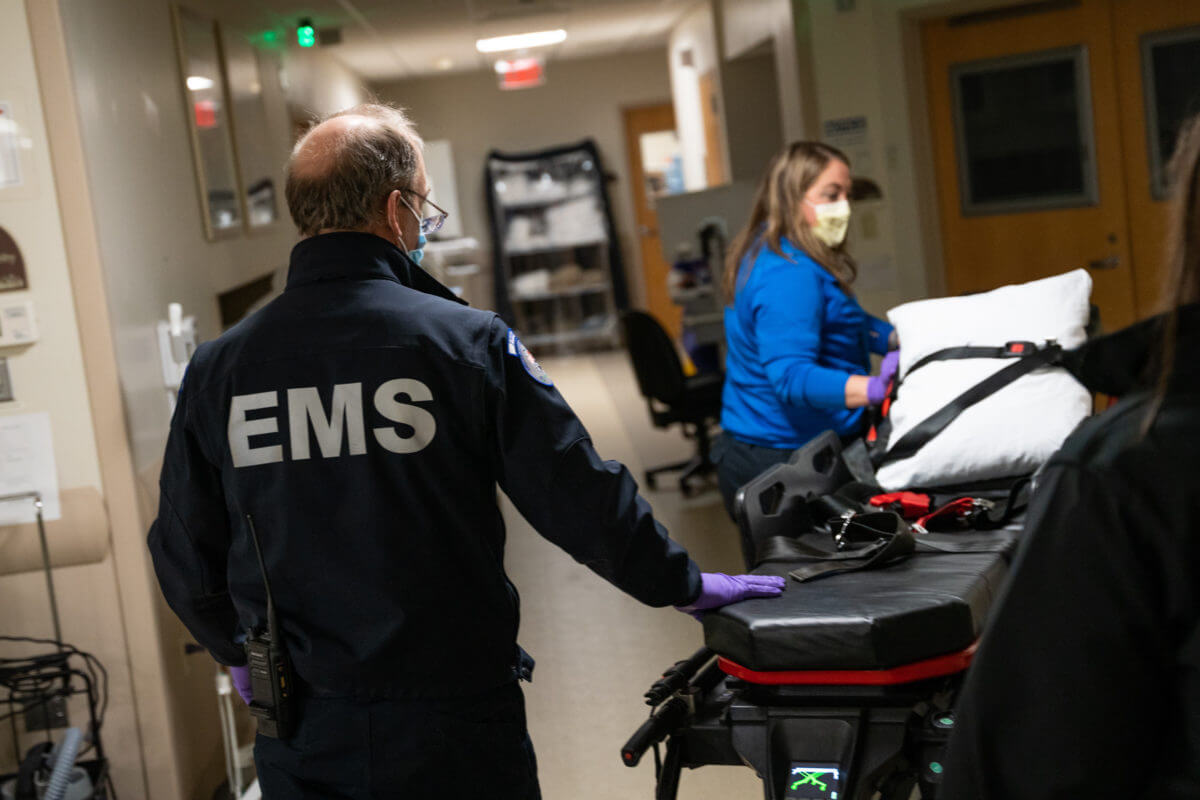
Sometimes instead of moving a patient to an ICU bed in St. Cloud, a surgeon drove to a regional hospital and performed the operation on site. Other times, the patient went to St. Cloud just for the operation, and then was brought back to recover in their hometown hospital.
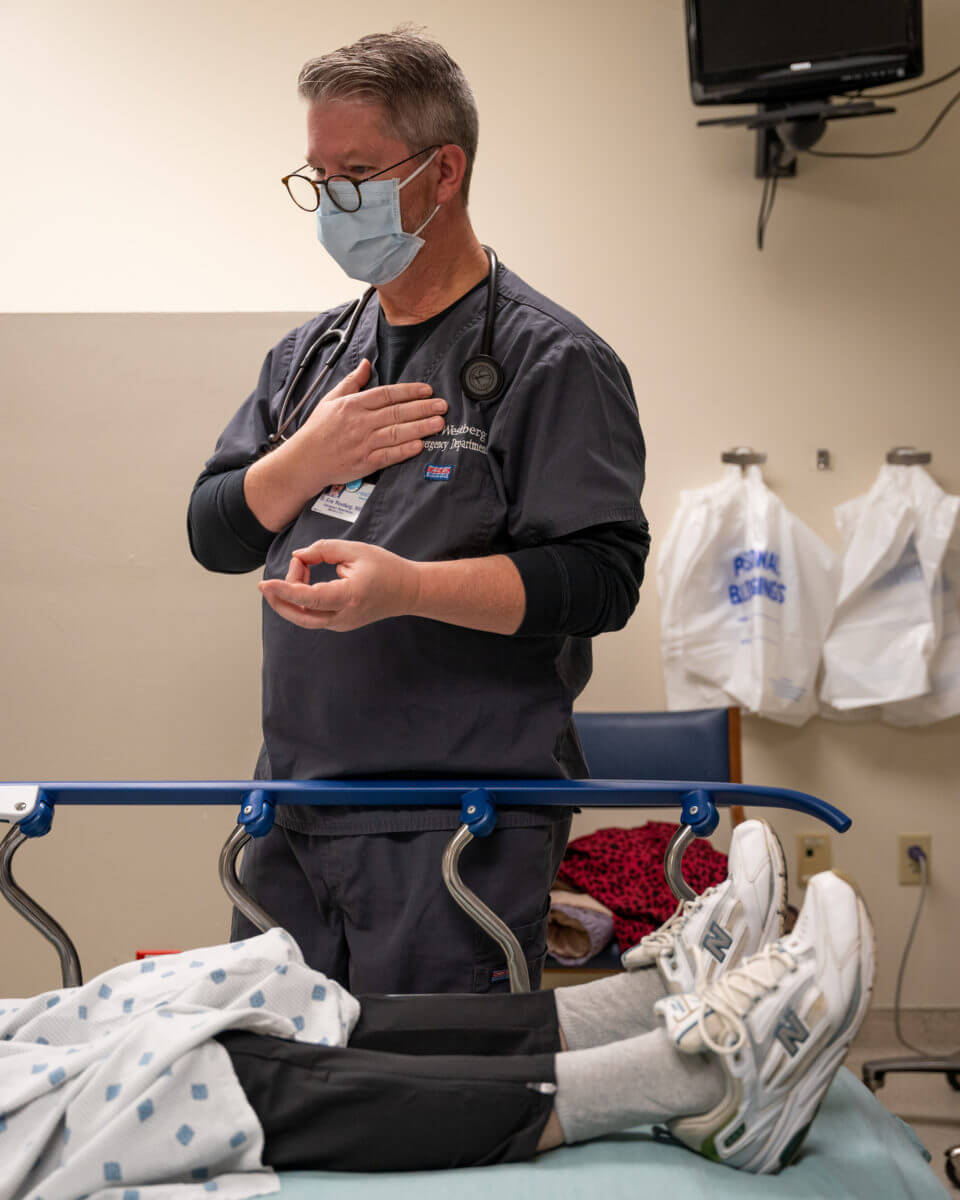
Close to home
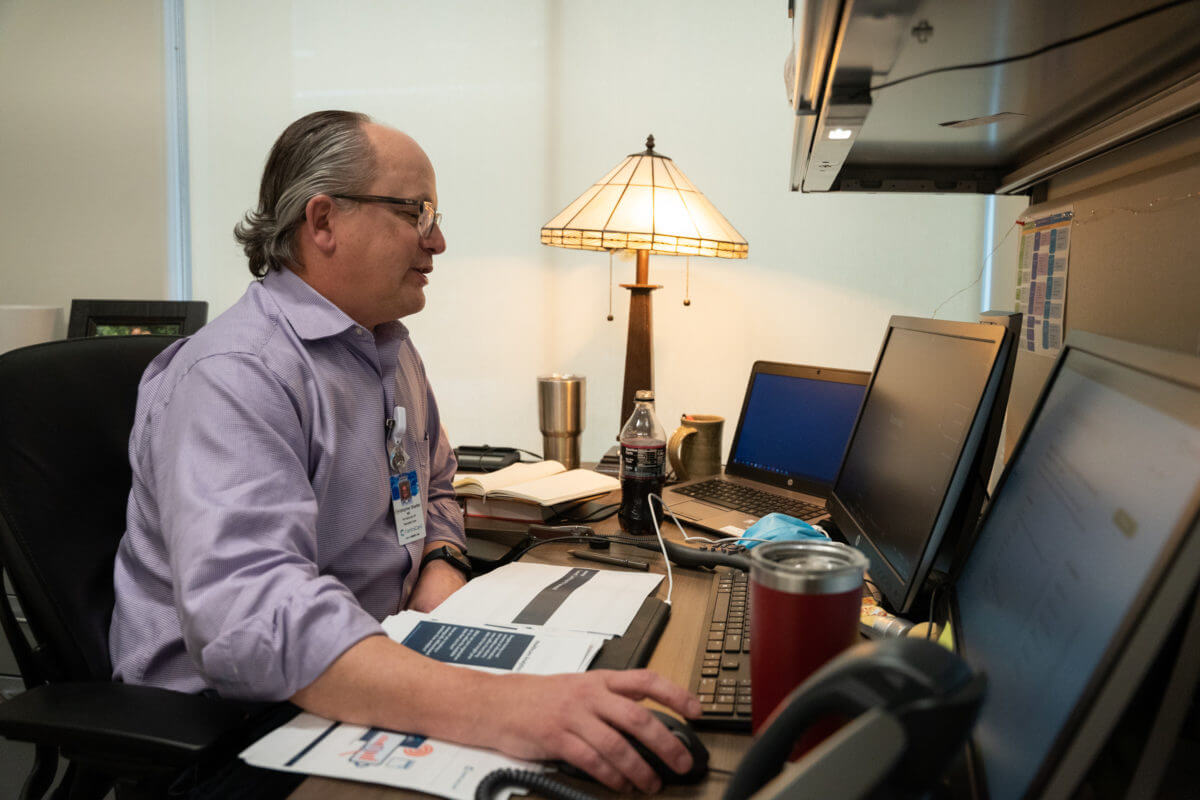
“Honestly, the MOD huddle is one of the most incredible things to come out of the pandemic,” said Chris Boelter, MD, Physician VP of Specialty Care who serves as Physician Executive of the Day in a rotation with Drs. Schrup, Matthias and George Morris, MD.
“What was really, really cool was seeing where capacity was and knowing that a patient who showed up in Melrose, needed admission, but there’s nothing in Melrose or St. Cloud, got admitted into Long Prairie and cared for as though there weren’t any central care site.”
Thanks to the creation of the MOD, regional hospitals have been able to keep patients in their care who would normally have been sent to St. Cloud. The MOD is available to consult with a regional nurse or physician about a patient, or tracks down the right specialist to answer their questions.
“Where they were helpful, I think, is allowing us to share with them what resources we had such that they could say, ‘Okay, yep, go ahead and try that,’” paraphrased Dr. Chmielewski. “Maybe it won’t work. But could it temporize the situation? Could we at least get the patient to a more stable point before transfer?”
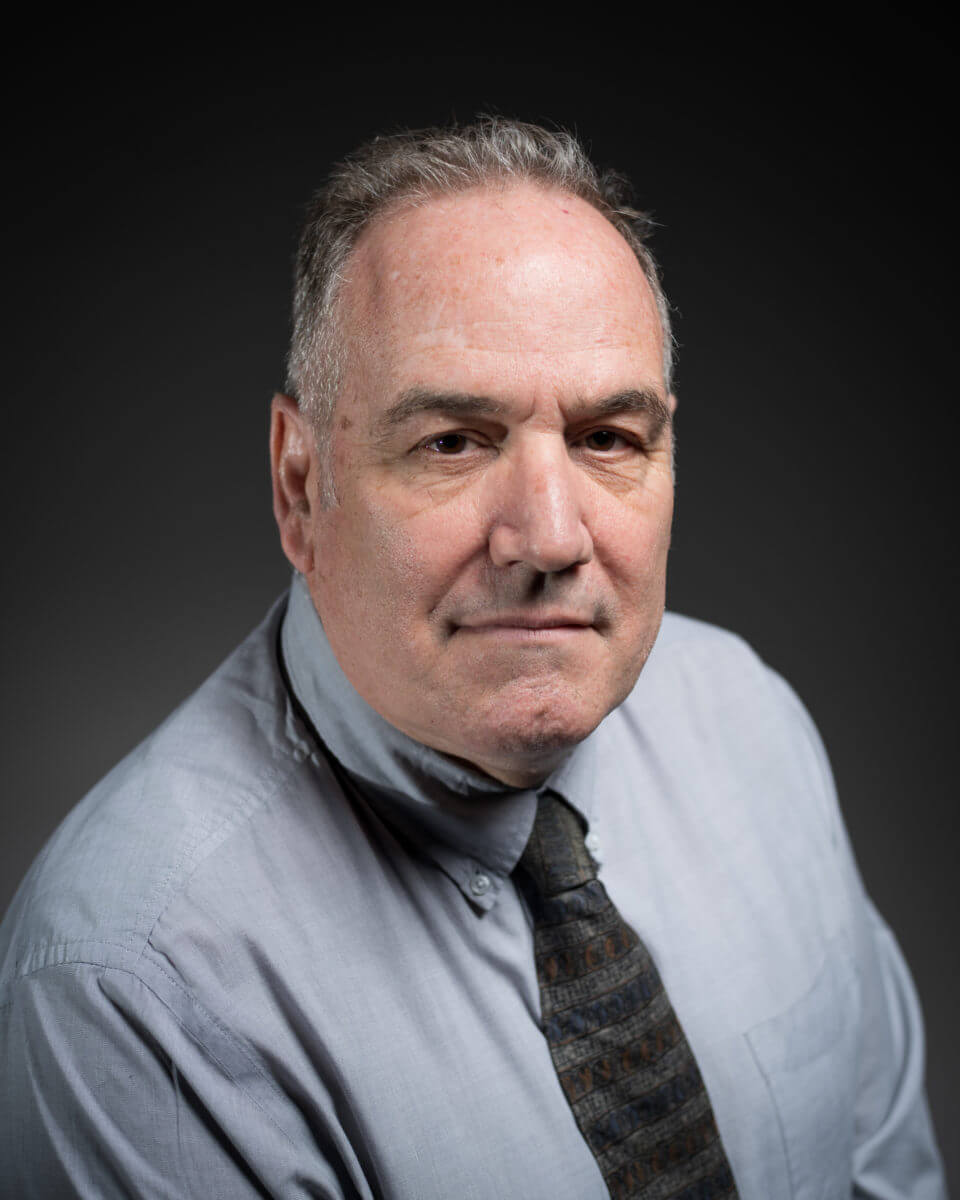
Joe Mercuri, MD, says often his job as MOD boiled down to reassuring regional staff that they were in fact doing everything right.
“I can’t tell you how impressed I was with our outside physicians and APPs and how courageous they were,” said Mercuri. “It’s a very difficult position to put a physician or APP in — an environment that’s out of their comfort zone and, sometimes, expertise level. My main role was just to reassure them that they could do this, and they knew how to do this. I was really impressed as time went by, how much more self assured people were, and self confident, as they took on these bigger challenges.”
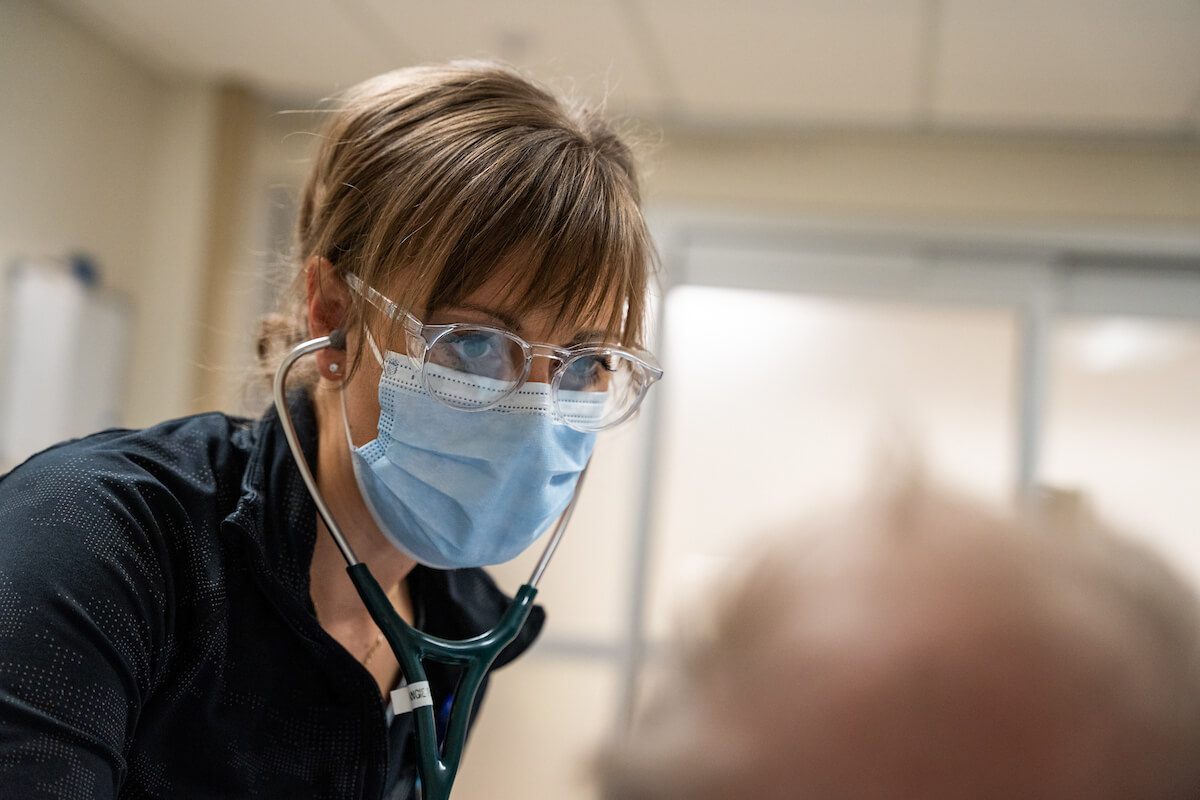
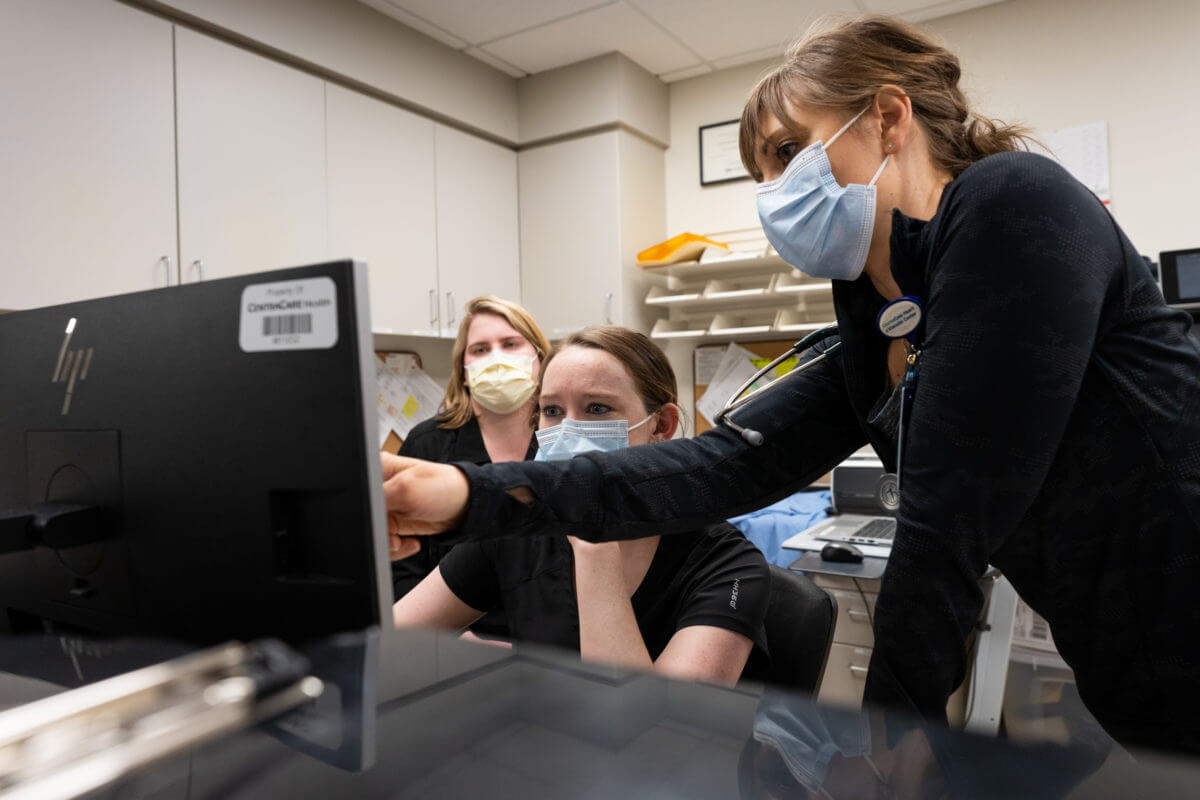
Nurse Practitioner Angie Paschke says attending the MOD huddle has helped to make CentraCare feel like one big campus, rather than a bunch of isolated islands.
“The payoff for me personally is understanding,” said Paschke, who frequently leads the Sauk Centre care teams on nights and weekends. “It is very frustrating if you don’t know what’s going on. You’re out at this regional site, and you’re like, ‘How can the central people not help us? How can there not be a bed in St. Cloud? This person is so sick, they do not belong here with me, they need the intensivist… How can they not help me? I don’t get it.’ Then, on this call, you’re like, ‘Oh, that’s why they can’t help me – they are drowning themselves.’”
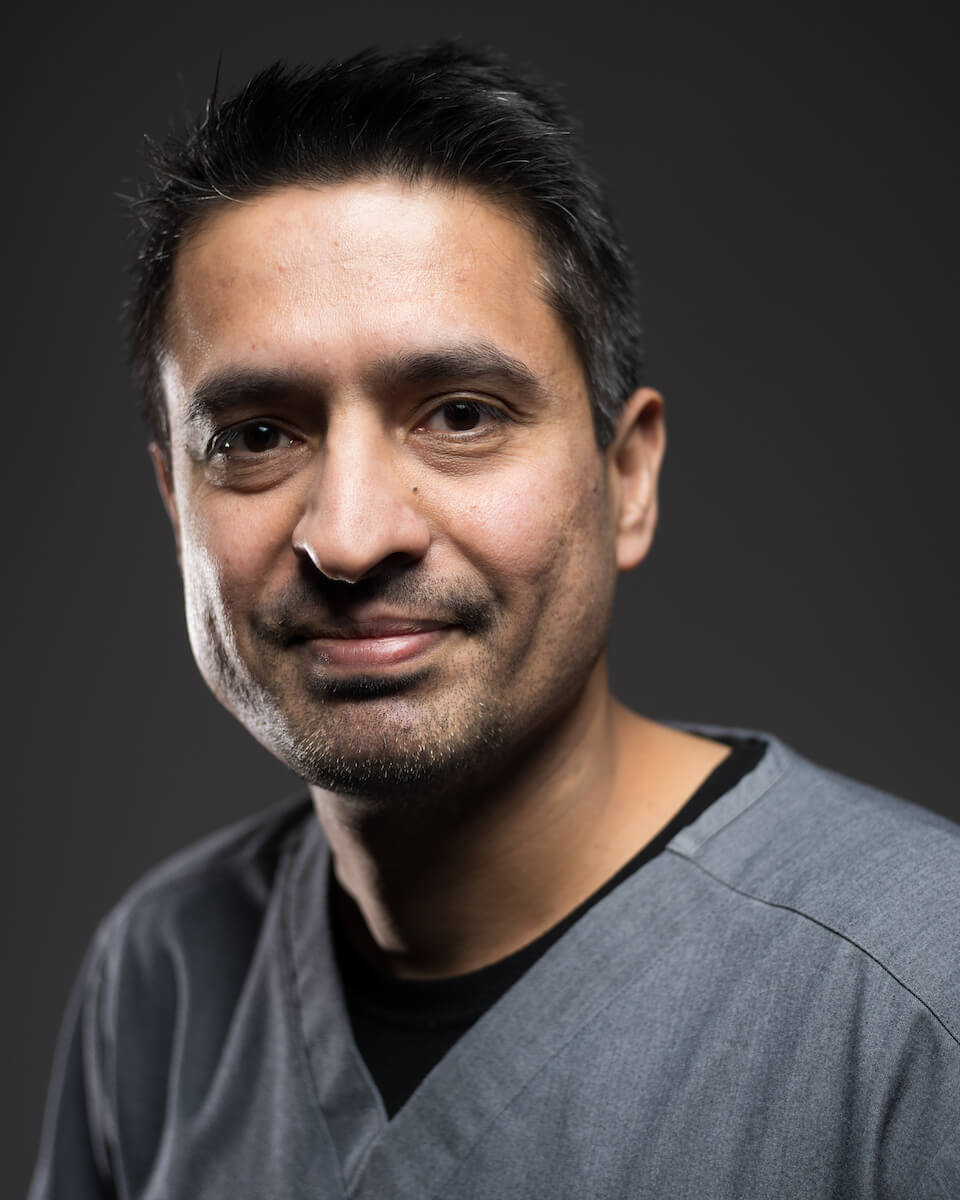
In turn, St. Cloud based staff have gained new respect for their regional colleagues. Hospitalist Ari Dalal, MD, said the regional nurses and physicians are nothing short of heroes.
“It basically shed some new light for [us] about better understanding what it is to deliver rural health care in these kinds of circumstances,” said Dr. Dalal, “And consequently, be more empathetic with people who are in that situation and basically walk that extra mile to help out when possible in any way we can.”
Cultivating Empathy




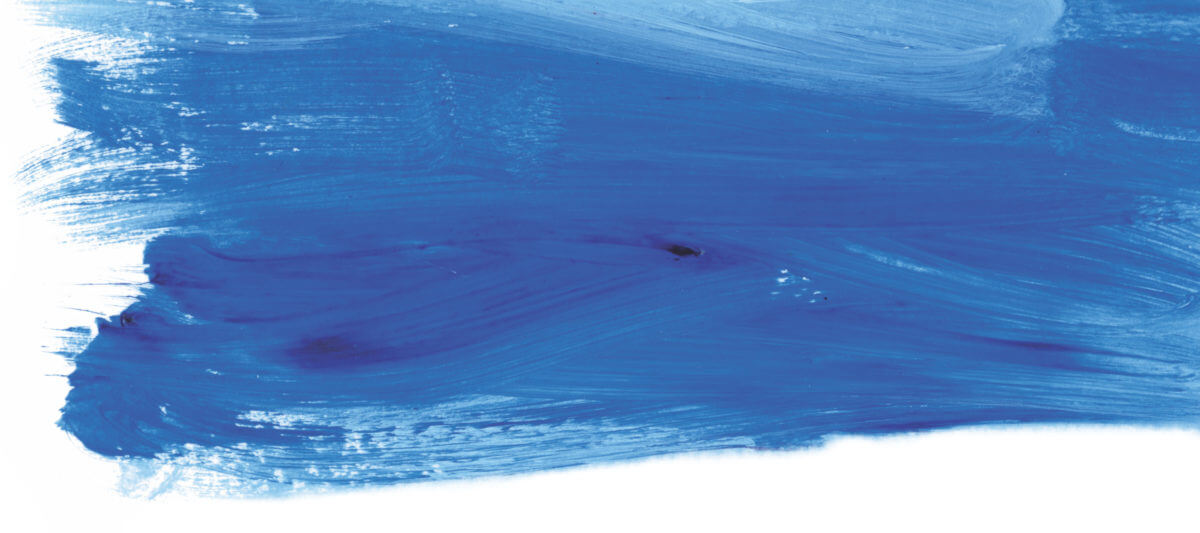
What a great article and testimonials that show the power of empathy, listening, teamwork and the CentraCare spirit – thank you!
Thank you and wow. So proud of everyone.